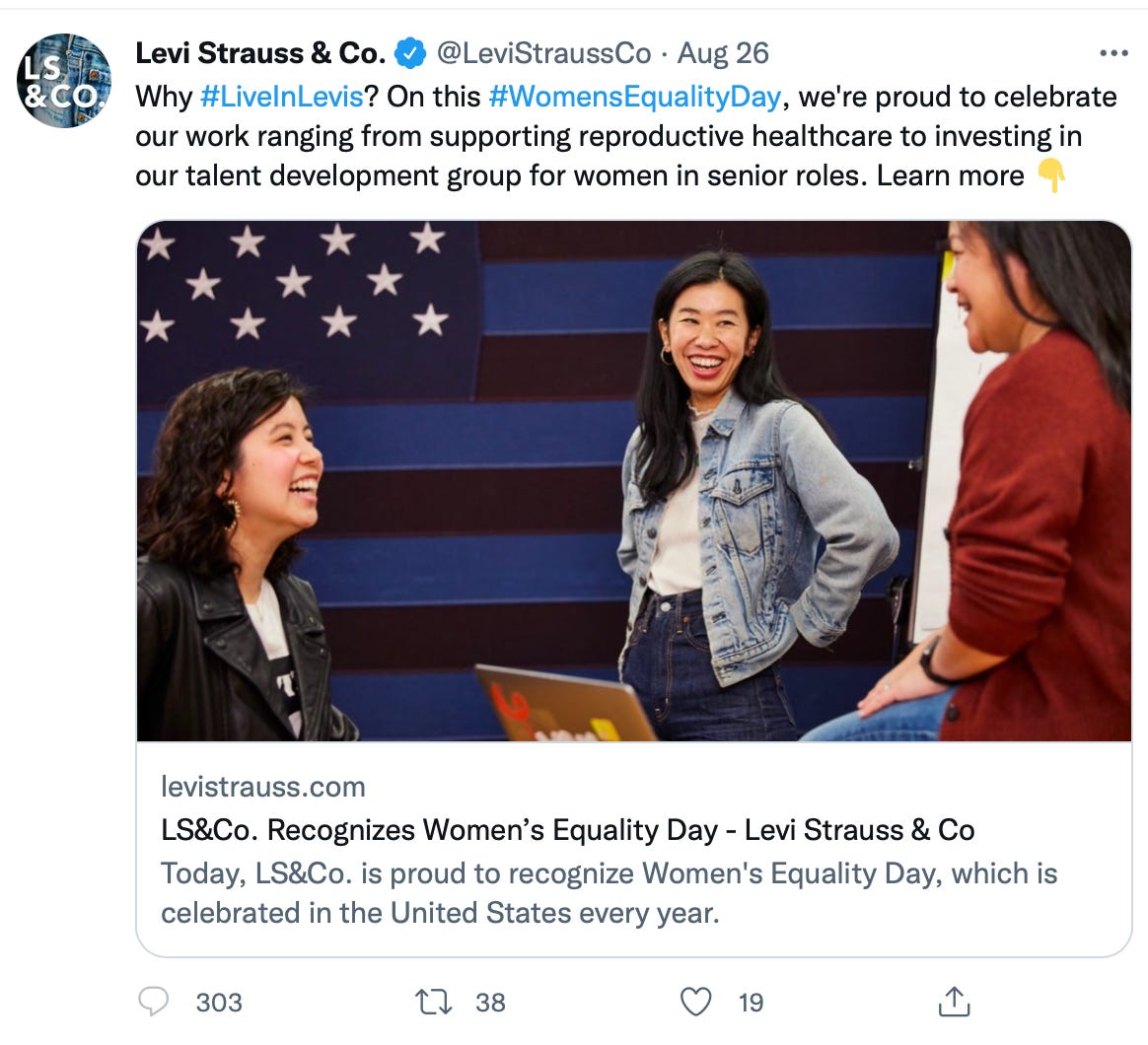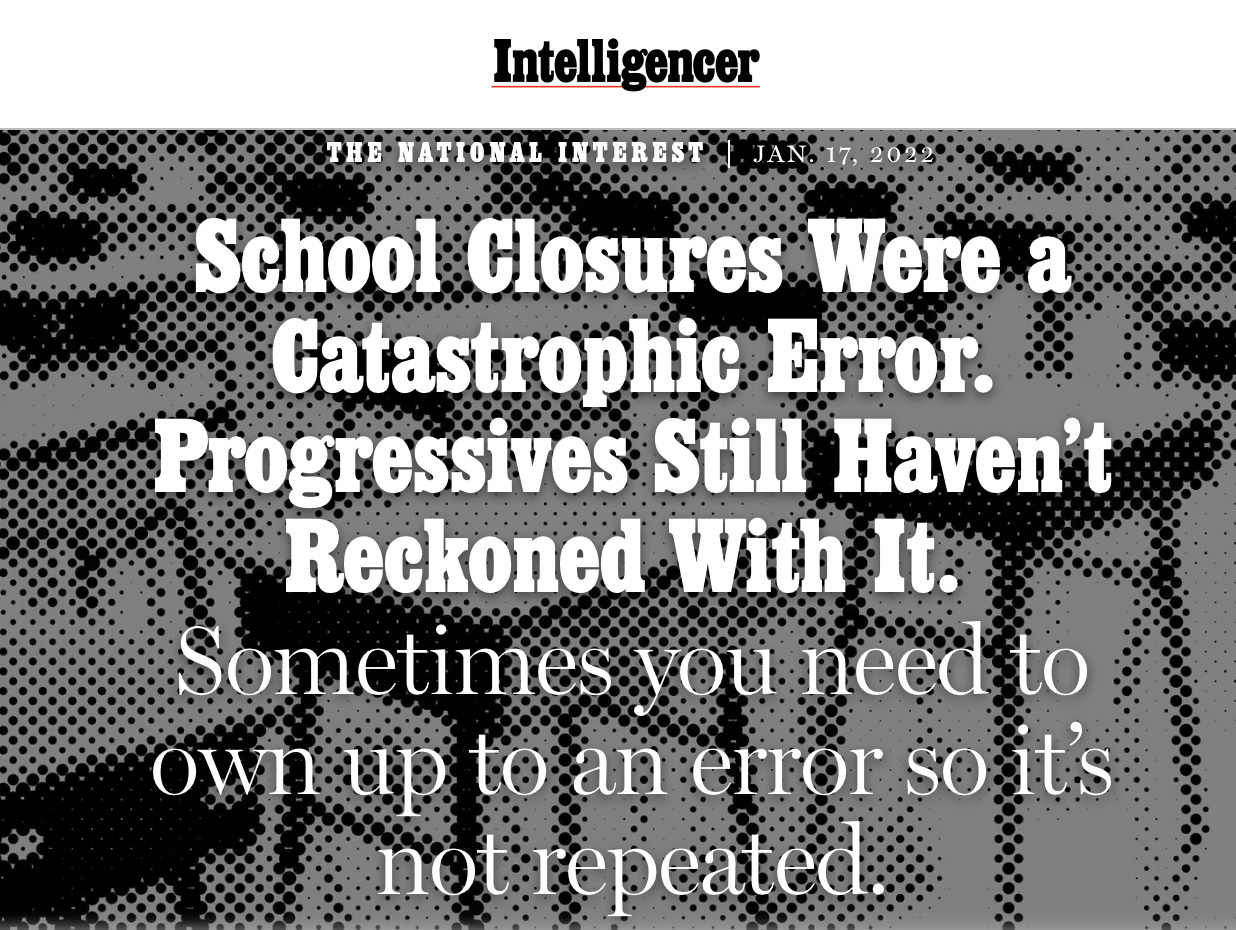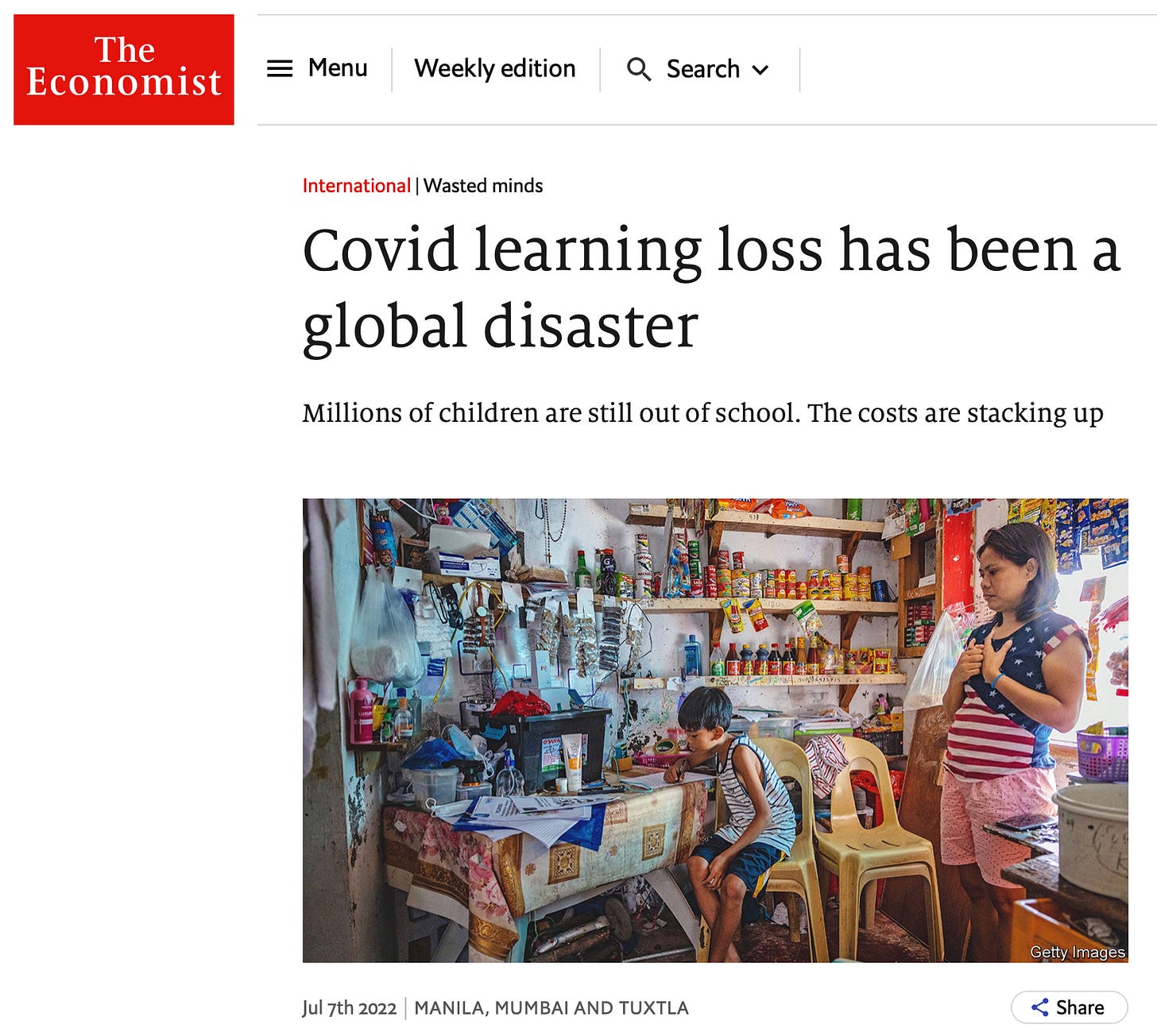Oh the ratio!
When I worked at Levi’s as the chief marketing officer, we had a rule regarding social media: never turn off the comments. Levi's doesn't follow that rule anymore.
When I worked at Levi’s as the chief marketing officer, we had a rule regarding social media: never turn off the comments. Sure, some would be negative. But the whole point of participating in social media as a brand is to engage in a conversation with fans, and sometimes, even people who aren’t fans.
Generally what would happen if there were negative comments, was that the commenters would start communicating with each other. And the negative comments would get pushed down in the thread, overtaken by more positive comments. Because, generally speaking, the people following a brand are fans. So there would always be plenty of defenders.
Turning off comments flies in the face of having a social media presence, which is pretty much required for all brands and businesses now. Why? Because it clearly indicates that the brand isn’t in it for the conversation, for thoughtful feedback, but rather for praise alone.
Obviously, a brand hopes for mostly positive comments, but it is necessary to endure the negatives as well, lest you reveal your cards as a sycophant only seeking praise. It is important to present the image of: we’re here for the conversation! (Not we’re here for the compliments.)
And so, I couldn’t help but laugh when my former employer posted this last week in celebration of Women’s Equality Day, and ultimately turned off the comments due to a devastating “ratio”. Here’s the original post:
What’s a ratio? Here’s the general internet definition:
On the social media platform Twitter, a ratio, or getting ratioed, is when replies to a tweet vastly outnumber likes or retweets. This means people are objecting to the tweet and considering its content bad.
It goes without saying that a tweet that generates more than 300 negative comments and close to another 40 negative quote tweets, to only 19 likes, is a decisive ratio. Close to 20:1.
Here are just a few of the replies, many of which got more “likes” than the original post:
They go on. And on. And on.
After a thorough hammering, the company turned off replies except for those from accounts they follow, thus guaranteeing any additional comments would be positive. This action generated exactly zero positive comments. The ratio stands.
Do I delight in this just a little? That all of these people bothered to identify and name the hypocrisy of Levi’s posturing about how they support women in the workplace, when they’d fired me for having an opinion, for using my voice? (Ironically, “use your voice” was one of our campaign slogans, one that I created.)
Yes I take a little delight in this. Of course I do. I’m not immune to just a touch of schadenfreude as I sit here writing this, unemployed. I mean c’mon, I’m human!
But I’m going to make a different point.
In 2016, Levi’s CEO Chip Bergh, published an open letter on LinkedIn requesting that consumers not bring guns into Levi’s Stores. It came on the heels of an incident in Georgia in which a shopper, trying on jeans in the dressing room of a Levi’s Store, accidentally discharged his gun. The only person injured was the carrier of the weapon, but it was terrifying for everyone in the store - shoppers and salespeople alike. The request (it was a request, not a demand) from the company to leave your guns at home was an honest attempt to keep Levi’s employee safe.
The backlash to this announcement was swift, and entirely predictable.
We were “anti-2A.”
Jeans buyers raged: “I’ll be buying Wranglers from now on!”; and told us “I’ll spend my money elsewhere from now on!”
And of course: “#boycottLevis”.
We knew it would come. In fact, Chip said in an interview with Fortune that he knew many would react to this request to leave guns at home when coming to the mall, by calling for a boycott, but “most boycott threats around this topic ultimately blow over.”
He was right. They do. Because, as Dave Chappelle has famously said, “Twitter is not a real place.” Twitter comments usually do not translate into real-life action, at least not as it pertains to shopping behavior.
In fact, in 2017, the year after Chip made this announcement, Levi’s sales grew close to 8%. And the year after that in 2018, Levi’s had a successful initial public offering (IPO), taking the company public.
So the question is, why not apply this same sort of tolerance to me? My advocacy through social media and beyond, never garnered near the negative commentary that our gun announcement had. But the rationale for saying I couldn’t work there anymore was that, well, it could have. Except it didn’t.
And now, the broad consensus is that public school closures were catastrophically harmful. Which is what I’d said would happen - that kids would be harmed. And then they were.
My last day as a Levi’s employee was February 13th, 2022. Just two days later, three San Francisco school board members were recalled. Why? They refused to open schools for a full nineteen months during 2020-2021.
All Levi’s, and Chip, had to do, was wait two days. On February 15, it would have been clear that the vast majority of people (more than 70% of those who voted in the special recall election) in San Francisco, where Levi’s is located, agreed with me even if they’d been afraid to say so publicly for the prior two years.
They didn’t even have to wait at all. This headline appeared the month prior.
Just a few months later, headlines like this one in The Economist would be everywhere:
Why wasn’t Levi’s willing to deploy the same forbearance that they had around our gun announcement to me and my open schools advocacy? I’ll tell you why. Because they didn’t agree with me. Because my exhortations to open public schools went against the progressive policy machine - government leaders, public health, and the media.
It doesn’t matter that I was right. I was disobedient and that is dangerous.
The cogs in this progressive machine will never admit wrong-doing. Ever. They’ll say “we did the best we could in an uncertain situation,” (not true, both red states and European countries had all opened schools by Fall 2020) or “what a shame this happened” as if no one made it happen. But they will ultimately be overwhelmed by facts. It was a catastrophic policy choice and kids will be adversely impacted for a generation. In fact, closures caused the sharpest educational drop in close to 50 years. Utterly tragic. And avoidable.
On a smaller and less tragic scale, that humiliating ratio, and the dumb decision to turn off comments, was also avoidable. Perhaps they wish that they’d shown a tad more patience and thereby truly supported women’s equality, rather than just virtue-signaling about it. With just a little patience - and true commitment to their stated principles - they’d have had the chance to be true heroes and true supporters of women’s voices. But it’s too late for that now.
The hypocrisy has been revealed and it’s clear that their commitment to women’s equality is just a pose for likes.
Oops.
(Note, quote tweets are still possible. Feel free to join in the conversation. Brands love it when you do that!)










The ratio of hypocritical leaders to genuinely-committed-to-the-mission leaders, everywhere, in business and in nonprofits, is pretty remarkable too. It's always shocking to discover that colleagues, or bosses, or both, don't really believe in anything much except keeping their images clean.
I worked for a grantmaking foundation (that gave out between $1.5-2 million/yr at that time) for 13 years (as the support person). They gave to a variety of causes and, in NY, mostly to social welfare and the arts. One of our grantees worked with at-risk teenagers, and my boss decided we ought to provide an internship to one of them.
The grantee sent over a black teenage girl and I was asked to show her what the expectations were and to evaluate her.
This girl clearly had had no exposure to the East Side office world. She was shy to almost the point of muteness. But she listened carefully to what I told her; she was neat and appropriately dressed, with an almost old-fashioned conservative modest affect, and I liked her very much and thought she was exactly the sort of kid who would most benefit from an experience like this and whose world might be positively changed by it.
My boss didn't want her. She first approved a charming black teenage boy who was used to snowing progressive white women and who thought he could get away with playing with his pet whatever on the devices they had back then instead of shelving books in our conference room, and after giving him a few gentle warnings, I told my boss he wasn't working out. He was sent back and the next candidate was a lively, charming, intelligent Dominican girl who was gonna succeed in life anyway and my boss loved her.
I've never forgotten this, how the young woman who most needed this opportunity and who absolutely had, at least, the correct presentation for an office setting but didn't know how to sell herself to the progressive set and didn't suit the image my boss wanted. My boss who was a big knacker in NYC Democratic politics, who was at Bill Clinton's inauguration, but couldn't give 2 months to a black kid who'd've remembered it forever.
People like my boss fill the world you were in at that level at Levi's. You'd recognize the type everywhere now.
Perhaps Levi are hoping to supply the uniforms for the WEF's planned global serfdom?